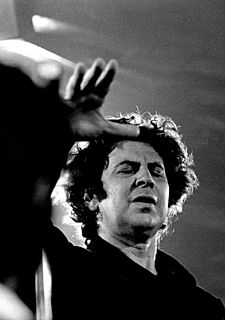A Quote by Kevin Spacey
I've never heard of a situation where, because somebody had a particular political belief, they didn't get a part. I think it's a bit of a myth.
Related Quotes
The heart of Christianity is a myth which is also a fact. The old myth of the Dying God, without ceasing to be myth, comes down from the heaven of legend and imagination to the earth of history. It happens - at a particular date, in a particular place, followed by definable historical consequences. We pass from a Balder or an Osiris, dying nobody knows when or where, to a historical Person crucified (it is all in order) under Pontius Pilate. By becoming fact it does not cease to be myth: that is the miracle.
I have always had a deep belief that every movie, every artistic expression, is political. Don't be fooled. Even ones that we wouldn't consider overtly political are political. When we spend time doing anything, whether it's distraction or whether it's something that we have to face, it is always political. That's my belief.
Maybe this is all a bit of a myth, a willful desire to give each place its own unique aura. But doesn't any collective belief eventually become a kind of truth? If enough people act as if something is true, isn't it indeed "true," not objectively, but in the sense that it will determine how they will behave? The myth of unique urban character and unique sensibilities in different cities exists because we want it to exist.
I always have difficulty with the Greek tragic plays. I think the difficulty one has - which is a serious problem - is the question of belief. Do you believe in the myth that the play expresses? Do you believe in it as myth or as reality? With any play, you have to believe in it as reality. You can't act a myth.




































